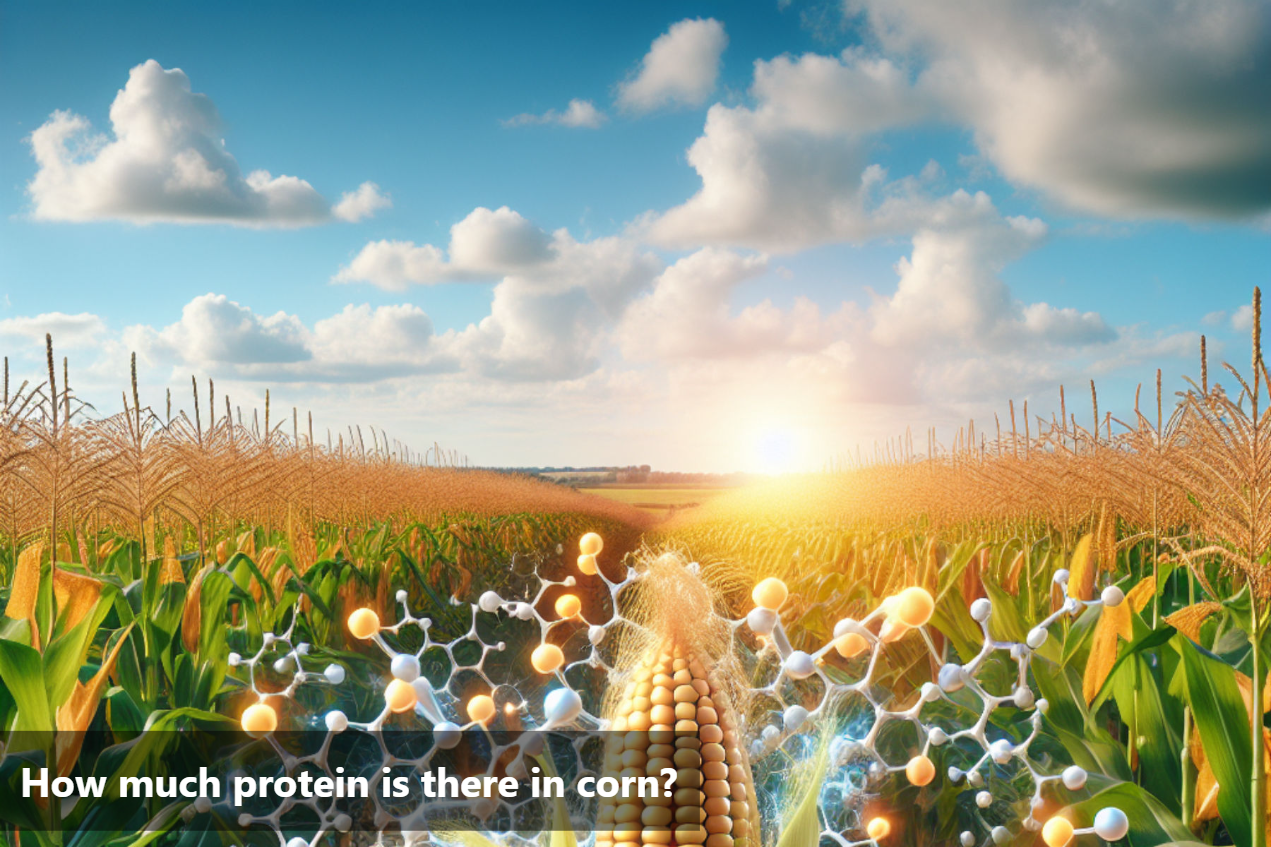
How much protein is there in corn?
The significance of protein in our diet cannot be overstated. When it comes to sources of protein, we often think of meat, poultry, fish, dairy, and legumes. However, there is one surprising contender that sometimes flies under the radar – corn.
Corn, a staple food for many cultures worldwide, boasts a noteworthy protein content that may surprise some individuals. While it is commonly known for its carbohydrate content, corn also contains a decent amount of protein.
Understanding the protein content in corn, including how much protein is present in various types of corn per 100g, can shed light on the potential nutritional benefits this versatile grain offers. So, let's explore the protein-packed world of corn and uncover how it can be a valuable addition to your diet.

Nutritional Profile of Corn
One cup (164 grams) of sweet yellow corn contains:
Calories |
177 calories |
Carbs |
41 grams |
Protein |
5.4 grams |
Fat |
2.1 grams |
Fiber |
4.6 grams |
Vitamin C |
17% of the daily value (DV) |
Thiamine (vitamin B1) |
24% of the DV |
Folate (vitamin B9) |
19% of the DV |
Magnesium |
11% of the DV |
Potassium |
10% of the DV |
Protein Content in Different Types of Corn
Corn comes in various types, each with its own distinct protein content.
Sweet corn, a popular choice for consumption, generally contains a moderate amount of protein.
On the other hand, field corn, primarily used for animal feed and industrial purposes, tends to have lower protein levels compared to sweet corn.
Popcorn, known for its popping properties, also contains a differing amount of protein.
Several factors influence the protein levels in different types of corn.
The genetic composition of the corn variety plays a significant role in determining its protein content.
Additionally, factors such as soil quality, farming practices, and environmental conditions can impact the protein levels in corn. For instance, corn grown in nutrient-rich soil may have higher protein content than those grown in less fertile conditions.
Understanding the variations in protein content among different types of corn can help individuals make informed decisions about their dietary choices. By incorporating a diverse range of corn varieties into their meals, people can benefit from a balanced intake of protein along with other essential nutrients.

Corn dishes at home
Dishes |
Ingredients |
Recipe |
|---|---|---|
Cornbread Muffins |
|
|
Creamy Corn Soup |
|
|
Corn and Black Bean Salsa |
|
|
Corn Fritters |
|
|
FAQs
-
How much protein is there in corn?
Corn is not a significant source of protein compared to other foods. One cup of corn contains about 5-6 grams of protein.
-
Is corn a good source of protein?
While corn does contain some protein, it is not considered a high protein food. It is more commonly eaten for its carbohydrate content.
-
Can I meet my daily protein requirements with corn alone?
It would be challenging to meet your daily protein needs solely from corn. It is recommended to consume a variety of protein sources for a balanced diet.
-
Are there other protein-rich alternatives to corn?
Yes, there are many protein-rich foods such as beans, lentils, tofu, eggs, chicken, and fish that can help you meet your protein requirements more effectively than corn.
-
How can I incorporate more protein into my diet if I consume a lot of corn?
If you consume a lot of corn but are looking to increase your protein intake, consider pairing corn with protein-rich foods like beans, chicken, or tofu in your meals.
This Blog post is an initiative by Lo! Foods, to provide accurate and Nutritionist / Doctor approved information related to Health. Lo! Foods is India's leading brand for Everyday Functional Foods. Foods designed for specific Health conditions or Needs. Lo! Foods also runs India's largest range of Low Carb Healthy Cloud Kitchens, under the brand names of Lo!, ProteinChef, ATH (All Things Healthy) and DiabeSmart.









Leave a comment
Your email address will not be published.